BIG READ: Mind over modern life
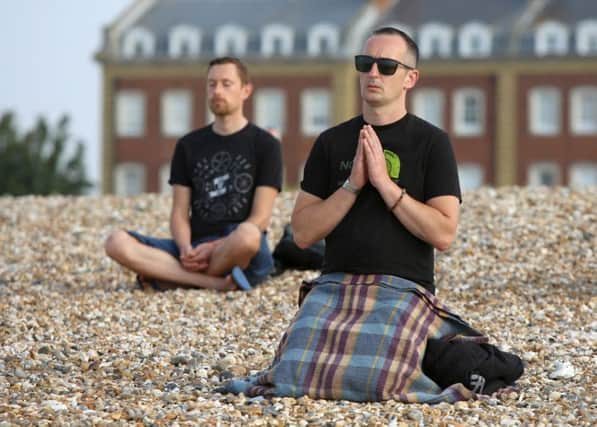

With modern life constantly bombarding us from all sides, it’s easy to become overwhelmed.
But at the Southsea Sangha, an urban Buddhist meditation group, its members take time out from the frantic world around us to refocus – and to try to find a little bit of peace and calm.
Advertisement
Hide AdAdvertisement
Hide AdLed by community dharma leader Daniel Sutton-Johanson, pictured on the front page, he turned to meditation when he hit trouble in his own life – because of drugs and depression.
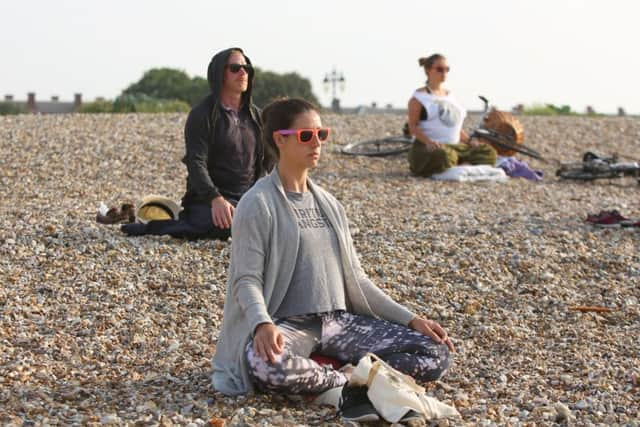

As he explains: ‘I first began meditation in 2004. I’d hit rock bottom, and after beginning a local yoga class I was told about Gaia House, a Buddhist meditation retreat centre in Devon. I attended my first three-day silent meditation retreat and was hooked. This was the beginning of my recovery.
‘Those three days offered me an incredibly challenging and insightful opportunity to see much more clearly and relate more skilfully to myself and the experiences, both pleasant and unpleasant, which I was encountering in my life. I began to practice daily, attended more retreats from France to India, varying from three days to three weeks and the rest is history.’
He started Southsea Sangha after finding he lacked a like-minded community, or ‘sangha’ in Sanskrit, to practice with.
Advertisement
Hide AdAdvertisement
Hide Ad‘There were some other groups around but none I felt were my people, that felt inclusive of my cultural references and generation. In Buddhism there’s a central teaching called the three refuges. One of these is community – having a community of like-minded people who support each other in the difficulties and joys encountered in urban dharma practice, in going against the stream.
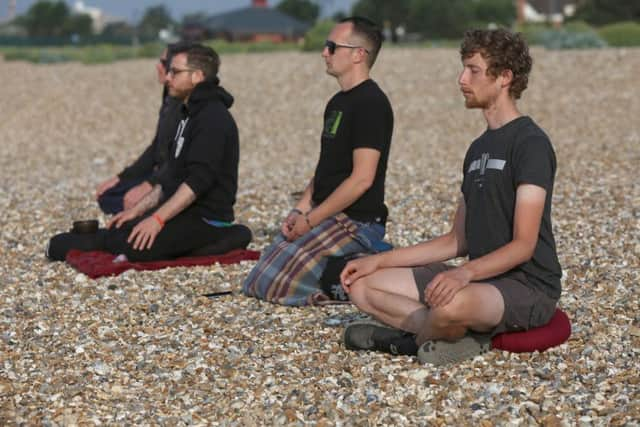

‘Teachers like JoAnna Harper and Noah Levine gave me a kick up the backside and told me to create my own. With the help of my friend Lucy Barlow from Portsmouth Yoga, that’s what I did.
‘I had no idea how to build a sangha but I started off once a month, on a Sunday beginning in May 2014, and in 2017 we’re still growing. I am supported by such a great family of volunteers and dharma teachers whose generosity (dana) has been vital to our community’s life.’
And Daniel says that finding meditation had a huge impact on his life.
Advertisement
Hide AdAdvertisement
Hide Ad‘Quite simply, I think it saved my life and that’s not meant to sound glib or overstated. It’s the truth as I experienced it. My relationship with myself and life was very unhealthy.
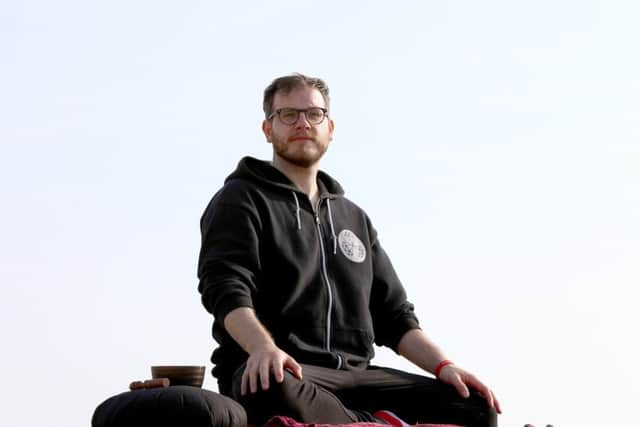

‘I relied upon things going my way, things to be pleasant all the time for me to be happy. Rather than responsibility which can sound very heavy, I prefer to say this practice made me more “response-able”, able to respond, able to relate to myself, others and life events with much more clarity, compassion, forgiveness and balance.
‘There are many benefits one can experience, such as relaxation, calming the mind down – not stopping it – from all the thinking and learning to live and rest in the present moment, more often.’
When Weekend attended a Sunday evening session, we spoke with some of the others taking part. Amor Parra, 35, from Southsea, is a regular, and found the sangha after moving here from her native Spain. She originally turned to meditation back in Spain, when she was uffering from depression. She now meditates five times a day. Echoing Daniel’s experience she says: ‘It completely changed my life.
Advertisement
Hide AdAdvertisement
Hide Ad‘I started to be able to focus my thoughts and feelings and I was able to start fixing things, and starting to understand why I felt this way.
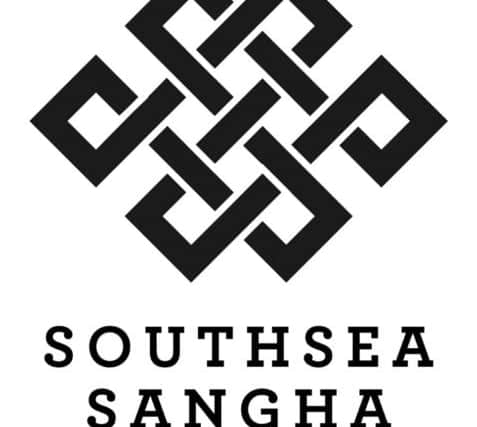

‘I can feel so uncomfortable when I stop and I can’t clear my mind, I can get so lost. I need to take time to listen to myself, otherwise you just follow the rest of society and you don’t think about yourself.’
Martina Gannon, 25, from Southsea, first discovered meditation while studying psychology at university. Even just doing short bursts every day, she still feels the benefits. She says: ‘I think I needed to unplug my mind. It helps me to be fully myself and fully able to work.
‘There’s so much mental energy involved in planning and organising in my job,’ says the teacher. ‘I do maybe five minutes a day if I’m consistent enough, I would do it more often if I had the time, but I guess it’s a matter of prioritisng it.
Advertisement
Hide AdAdvertisement
Hide AdAnd she also finds the benefits of the sangha approach: ‘I’m more focussed doing it in a group. The social side is interesting too – I can’t think of many situations where you are sitting next to strangers and can end up talking about these important issues and feelings. Pretty much every aspect of my life is improved when I do this.’
The sangha has also been well received in the community – as an extension of their practice they collect surplus food from Southsea’s Pie & Vinyl and Wild Thyme, supplying Lifehouse Food Kitchen for the homeless and regularly donate money to both PARCS and Lifehouse charities.
‘Southsea Sangha offers a safe and inclusive space for everyone in our city,’ adds Daniel. ‘Tackling barriers to inclusion, increasing representation of all the diversity that exists in this island city is a solid tenet of our constitution.
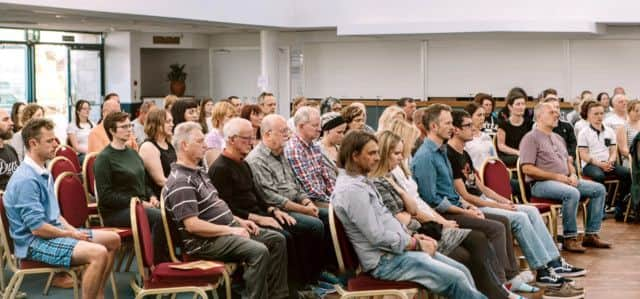

‘I think it comes as a breath of fresh air to those experienced or simply curious about meditation, mindfulness or Buddhism, that you could walk in each week to either Iggy Pop, Goat, Bowie or Nina Simone blaring out of the stereo. To see a diverse range of volunteers leading peer-led sessions and hearing topics and language that was more familiar from community dharma leaders, set the tone of this younger, vibrant and alternative, urban dharma practice community.’
Advertisement
Hide AdAdvertisement
Hide AdWhile the sangha always welcomes newcomers, Daniel cautions against expecting too much too soon.
‘The extent of how it can help is related to the amount of effort you can put into it. You wouldn’t walk into the gym for the first time and try to do a 150kg deadlift, you’d start with lower weights and gradually move up.
‘Dharma practice and meditation is no different. It requires patience and effort but you have a community here ready to support you if you wanted to improve your contemplative fitness.
‘The Buddha always ended any talk or teaching with the phrase “Ehipassiko,” which means simply, come and see. Come and check it out for yourself, don’t take my word for it just because the Buddha was some celebrated dude with something interesting to say. Don’t take it on blind faith. Listen, practice and come to your own conclusion, not mine. So that is my invitation I guess. Come and see.’
HOW TO GET IN INVOLVED IN SOUTHSEA SANGHA
Advertisement
Hide AdAdvertisement
Hide AdThey run groups every Sunday at Portsmouth Yoga Studio on Albert Road, in Southsea, 6-7pm, except the last Sunday of each month, which runs to 8pm.
They run entirely on generosity (dana/donations) but no-one is ever turned away for a lack of funds.
There is also a stay-and-play group, Sangha Mums, at Cockleshell Community Centre on the last Monday of each month at 10.15am. This is an opportunity for mums interested in or practicing meditation to meet while letting the kids have an opportunity to play.
An early morning beach meditation group called Beach Body-Sattva started recently too, on the beach at Eastney, close to The Coffee Cup, 7– 7.30am.
Advertisement
Hide AdAdvertisement
Hide AdCheck their website, southseasangha.com, for more information
MY FIRST STEP ON THE ROAD TO INNER HAPPINESS by Chris Broom
The session’s leaders Sue Knight and Emily Neale are instantly welcoming and explain that while good posture is important, how you achieve it isn’t – you can sit on a chair, you can sit on a low stool, or my option, on the floor astride a cylindrical cushion. Whatever works for you.
The 12 of us who assemble in a circle ranged from those in their early 20s to those who have retired.
As Emily briefly explains, we would be following a metta bhavana or ‘loving-kindness’ practice – with the aim of delivering positive intentions. We begin with breathing exercises. Closing my eyes, Emily instructs us to start taking deep breaths, and in turn, we focus on different parts of our body. It’s a surprisingly relaxing sensation. The main exercise is in five parts. To start, Emily asks us to focus on ourselves, and to send positive thoughts through a repeated phrase, she suggests: ‘May you be well, may you be happy,’
Advertisement
Hide AdAdvertisement
Hide AdThe next stage is a loved one, then someone you feel neutral about, followed by someone you dislike. It is this stage that causes my jaw to clench, But following Emily’s instructions, I return to the breathing to refocus.
Finally we turn to the world outside. Curiously, I find this easier – thinking positively about an abstract greater whole, rather than an individual.
It’s a challenging experience, but the half hour flies by, and yes, I do feel calmer, more relaxed, and positive.